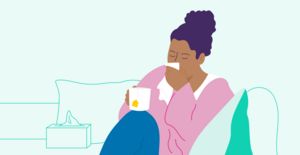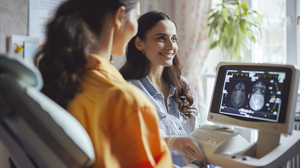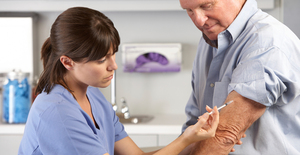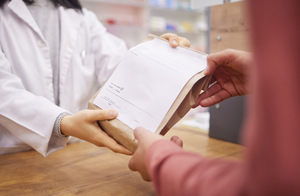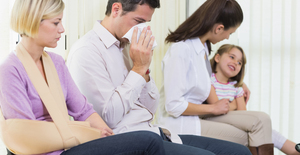Book an STD Test in Columbia, MO
Own a clinic? Add your location.
Help patients book appointments with you on Solv. It's free!
7 instant-book locations

NextCare Urgent Care, Nifong
NextCare Urgent Care

NextCare Urgent Care, Columbia (Stadium Blvd)
NextCare Urgent Care

Quest Diagnostics
Quest Diagnostics
Self-pay pricing
Clear self-pay prices
No more surprise bills. Solv is committed to making getting healthcare as easy as buying groceries at the store, including knowing the price of care upfront.

Quest Diagnostics
Quest Diagnostics
Self-pay pricing
Clear self-pay prices
No more surprise bills. Solv is committed to making getting healthcare as easy as buying groceries at the store, including knowing the price of care upfront.

Quest Diagnostics
Quest Diagnostics
Self-pay pricing
Clear self-pay prices
No more surprise bills. Solv is committed to making getting healthcare as easy as buying groceries at the store, including knowing the price of care upfront.

Quest Diagnostics
Quest Diagnostics
Self-pay pricing
Clear self-pay prices
No more surprise bills. Solv is committed to making getting healthcare as easy as buying groceries at the store, including knowing the price of care upfront.

Self-pay pricing
Clear self-pay prices
No more surprise bills. Solv is committed to making getting healthcare as easy as buying groceries at the store, including knowing the price of care upfront.
Columbia Urgent Care
Columbia Urgent Care
Spectrum Healthcare
Spectrum Healthcare
University Physicians - Urgent Care
University Physicians - Urgent Care
Boone Medical Group Convenient Care
Boone Medical Group Convenient Care
Any Lab Test Now
Any Lab Test Now
Broadway Urgent Care
Broadway Urgent Care
Children's Hospital Urgent Care
Children's Hospital Urgent Care
Mizzou Quick Care
Mizzou Quick Care
Mizzou Quick Care
Mizzou Quick Care
Boone Medical Group Convenient Care
Boone Medical Group Convenient Care
Mizzou Urgent Care
Mizzou Urgent Care
Mizzou Urgent Care
Mizzou Urgent Care
Own a clinic? Add your location.
Help patients book appointments with you on Solv. It's free!
Overview of STD Testing in Columbia
Who should get tested for STDs?
Anyone who is sexually active should consider getting tested for STDs, including those in monogamous relationships. This is particularly important for individuals who have multiple sexual partners or those who do not consistently use protection during sexual activity. According to the CDC, certain groups are more at risk, including young adults aged 15-24, men who have sex with men, and pregnant women. Regular testing is crucial for these high-risk groups to prevent the spread of STDs and to ensure early treatment if necessary.
Importance of getting tested
Getting tested for STDs is a critical part of maintaining your overall health. Many STDs can be asymptomatic, meaning they present no visible signs or symptoms. Without testing, these diseases can go unnoticed and untreated, potentially leading to severe health complications such as infertility, certain types of cancer, and increased susceptibility to HIV. Furthermore, regular testing allows for early detection and treatment, reducing the risk of transmission to others.
STD testing options in Columbia, MO:
Urgent care and walk-in clinics
Urgent care and walk-in clinics are excellent options for STD testing in Columbia, MO. Locations such as NextCare Urgent Care on N Stadium Blvd and E Nifong Blvd offer convenient, same-day and next-day testing appointments. These can be easily booked through Solv's website and mobile app.
Primary care providers
Primary care providers are another reliable source for STD testing. They can offer comprehensive sexual health screenings and provide personalized advice based on your medical history.
Free STD testing and community health centers
For those without insurance or with limited financial resources, free STD testing is available at community health centers in Columbia.
At-home testing
At-home testing kits are also an option. These kits can be ordered online, used in the privacy of your own home, and then sent back to a lab for analysis.
Prevalence of STDs in Columbia
Columbia, located in Boone County, MO, has seen a steady increase in STD cases over the years. According to the CDC, the rates of chlamydia, gonorrhea, and syphilis have all risen, mirroring the national trend. When compared to nearby counties such as Fulton, Johnson, Iowa, Warren, and Wayne, Boone County's STD rates are slightly higher. This could be attributed to a variety of factors, including population density and access to healthcare services.
Risk factors related to STDs in Columbia
Several risk factors contribute to the prevalence of STDs in Columbia. These include a lack of regular testing, unprotected sex, multiple sexual partners, and substance abuse. Additionally, socioeconomic factors such as poverty, limited access to healthcare, and lack of sexual health education play a significant role. Addressing these risk factors is crucial in reducing the spread of STDs in Columbia and surrounding areas.
Solv has strict sourcing guidelines and relies on peer-reviewed studies, academic research institutions, and medical associations. We avoid using tertiary references.
STD Testing FAQs
Where should I get an STD test in Columbia?
In a doctor's office, a health clinic, or an urgent care center, you can get an STD test. If you're experiencing symptoms, it's best to visit a doctor's office, where they can also treat you or issue you a prescription. While some Columbia clinics and urgent care centers allow walk-in appointments, it's advisable to make an appointment ahead of time to prevent excessive waits.
How long does it take to get STD test results?
Various testing are required for various STDs. Depending on the type of STD test you took, you may receive your results in two to ten days. Some outcomes may be immediately available. Your doctor may be able to diagnose an STD through a physical examination. In some cases, your doctor's office may only contact you if your test results are positive.
How much does an STD test cost in Columbia?
The cost of STD testing is governed by several factors, including where you are tested, the type of test you need, and if you have health insurance. Some Columbia clinics may offer free testing or testing on a sliding scale based on your income. Because of the cost, don't put off obtaining an STD test. With your doctor's office, discuss the cost and payment choices. Delaying STD treatment may have catastrophic implications.
Does insurance cover STD testing in Columbia?
The cost of STD testing is governed by a number of factors, including the location of the test, the type of test required, and whether or not you have health insurance. Some clinics may provide free or sliding-scale testing, depending on your income. Don't let the expense of an STD test deter you from getting one. With your doctor's office, discuss the price and payment choices. Delaying STD treatment could have catastrophic ramifications.
How do they test for STDs in Columbia?
There are around 20 different forms of STDs, each with its own set of diagnostic tests. No single test exists that can detect all types of STDs. Your doctor can help you figure out which tests you'll need. In STD testing, a blood sample or a urine sample may be used. Your doctor may also take a swab from the inside of your cheek, your vaginal area, or another potentially infected place.
What STDs can be detected by a blood test?
Blood tests are used to diagnose hepatitis B, hepatitis C, herpes, HIV, and syphilis. In a laboratory, a technician examines a blood sample for antibodies that the body has produced in reaction to disease. The virus's DNA can also be detected by several blood tests. Remember that if you've recently been exposed to an STD and your body hasn't yet produced antibodies, you could test negative even if you have the disease.
Can I get a same-day appointment for STD testing in Columbia?
Many Columbia, MO urgent care providers offer same-day and next-day appointments, which you may book through Solv. To make healthcare more accessible to everyone, we collaborate with thousands of top-rated local providers. Our physician partners understand that waiting days, if not weeks, for an appointment isn't always the best option, and they share our commitment to simple, accessible health care.
How can I book an STD test on Solv?
To find a healthcare practitioner in your area, simply enter your location and search for "STD test" on our website. A list of providers and available appointments can be found on the following page. Choose the most convenient time and location for you. Make it clear that you've come for STD testing.
How long does an STD test take in Columbia?
If you have a specific STD, inform your doctor so that the necessary test can be scheduled. Otherwise, they'll help you figure out which tests you'll need. The nurse or doctor simply needs a few minutes to get a blood sample, a urine sample, or a swab from the probable infection site.
Can I test myself for STDs at home?
Although there are several STD home tests available, not all of them are accurate. The accuracy of any STD test is determined by the quality of the sample taken. For home STD kits, a blood sample, a urine sample, or both are frequently required. Because doctors and nurses have more experience collecting samples, traditional in-office STD testing is the most accurate.
Related Searches
Drug Test in Columbia, MO
A1C Test in Columbia, MO
DOT Exam in Columbia, MO
Ear Wax Removal in Columbia, MO
Pregnancy Test in Columbia, MO
Sports Physicals in Columbia, MO
DNA Test in Columbia, MO
Blood Test in Columbia, MO
Lab Tests in Columbia, MO
Diabetes Test in Columbia, MO
Flu Test in Columbia, MO
Basic Metabolic Panel in Columbia, MO
Diagnostic Test in Columbia, MO
Cholesterol Test in Columbia, MO
Glucose Test in Columbia, MO
CMP Test in Columbia, MO
Allergy Testing in Columbia, MO
Strep Test in Columbia, MO
TB Test in Columbia, MO
Urinalysis in Columbia, MO
Vitamin D Test in Columbia, MO
H Pylori Test in Columbia, MO
Mono Test in Columbia, MO
Pulmonary Function Test in Columbia, MO
RSV Test in Columbia, MO
Thyroid Test in Columbia, MO
Urgent Care in Columbia, MO
Pediatric Urgent Care in Columbia, MO
COVID-19 Pill in Columbia, MO
COVID-19 Testing in Columbia, MO
Hepatitis test in Columbia, MO
Aetna Urgent Care
Blue Cross Blue Shield Urgent Care
Cigna Urgent Care
COVID-19
Flu
United Health Urgent Care
» All services in Columbia, MOFind STD testing
Nearby cities
Popular Brands in Columbia
Everyday Healthcare, Simplified
Expert advice to help you live your best life

